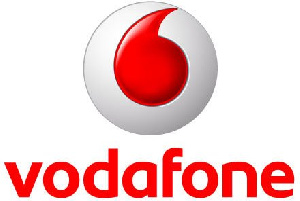Business News of Thursday, 3 July 2008
Source: Daily Guide
NDC Kicks Against Vodafone Deal
WITH VODAFONE Plc UK having allegedly completed the transaction to buy 66.7 percent of Ghana Telecom (GT), National Democratic Congress (NDC), Ghana’s biggest opposition party, announced its defiant opposition of the buyout at a press conference in Accra yesterday, calling on the government to put an end to the negotiations which the minority described as too confidential.
For a sum of $960 million(U.S.), Vodafone is said to have secured the deal to buy the majority of shares for GT, Ghana’s only government-owned communication company with fixed communication assets.
After declaring the sum too small and the deal too private, the minority said it hopes to sway the government away from ultimately securing the transaction, asking it to open up the bidding process to more and potentially higher bidders whilst improving transparency.
“The current situation is clearly against and in breach of established norms and standards for the privatization of a telecom entity as required by the International Telecommunications Union,” said Haruna Iddrisu, the Member of Parliament for Tamale South and the ranking member on communications.
Iddrisu expressed his party’s concern that the NPP government was breaching the Public Procurement Act of 2003, which declares that all international procurements be open to all potential bidders and are conducted transparently.
But open bids on GT did occur as early as 2005, with offers from at least four different foreign investors—the auction ending when the deal with France Telecom fell apart after the company declared that government was asking too much for the assets.
The NDC is also accusing the NPP of cheating the Ghanaian people of their entitled 1.5 billion U.S. dollars, the value placed on GT’s assets by the NDC.
“GT should not go for anything else than 1.5 billion U.S. dollars,” Iddrisu said, claiming that the company’s mobile components alone could go for 1 billion U.S. dollars.
Iddrisu also begged the question as to why individual Ghanaians have not been invited to buy shares in the company, arguing that Ghanaians alone could account for the $550 million U.S. dollars that government is asking.
Another concern lies in the details of what kind of company should be in charge of managing and administering Ghana’s only fixed communication network- the network that is responsible for the 233 country code and the 021 landline code.
As Vodafone is a company that deals only in wireless mobile communication, the minority is concerned that it has failed to meet even government’s chief requirement. That requirement is that it must have some experience in managing fixed communication assets.
Vodafone also lacks experience in unbundled broadband Internet service, NDC alleged.
Iddrisu claimed that giving over the administration of such an important company to a foreign entity, especially one without the appropriate experience, would be endangering Ghana’s national and economic security.
“We want a clear idea of exactly what Vodafone is doing. How did they get involved given the criteria?” Iddrisu asked.
He added that in a similar situation in Kenya, government had sold 40 percent of Kenya’s Safaricom to Vodafone, only to find out later that 5 percent was owned by a Vodafone subsidiary, which had not been listed on the contract.
Iddrisu said that such an incident should be taken as a forewarning.
Nevertheless, had the NDC been in power, Iddrisu said, it would have sold only 49 percent of GT shares, keeping 51 percent for “strategic purposes.”
Other NDC gurus at the press conference were Dr. Benjamin Kunbuor, Dr. Kwami Amporfo, Mahama Ayariga, Juliana Azumah-Mensah and minority leader Alban Bagbin.











